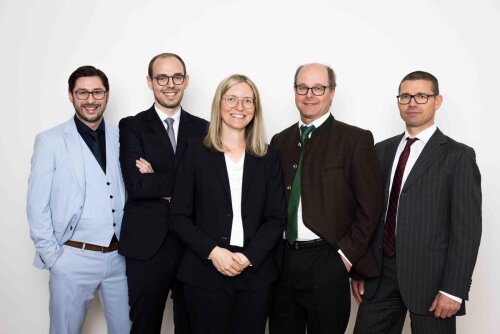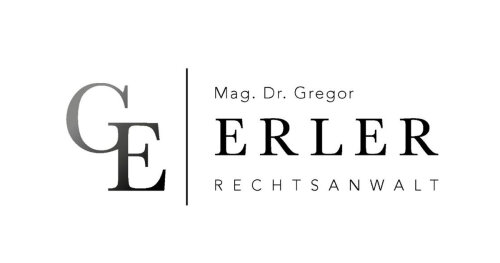Best ADR Mediation & Arbitration Lawyers in Linz
Share your needs with us, get contacted by law firms.
Free. Takes 2 min.
List of the best lawyers in Linz, Austria
About ADR Mediation & Arbitration Law in Linz, Austria
Alternative Dispute Resolution (ADR) methods, including mediation and arbitration, offer parties a way to pursue a resolution outside the standard court system in Linz, Austria. Mediation involves a neutral third-party mediator who helps the parties find a mutually agreeable solution, while arbitration is more formal, resembling court proceedings but typically faster and with more flexibility for parties. Linz, as a hub of commerce and industry in Upper Austria, supports a framework for ADR to resolve commercial, family, and civil disputes effectively.
Why You May Need a Lawyer
Individuals may require legal assistance in ADR Mediation & Arbitration in various situations, such as:
- Complex commercial disputes where interpretations of contracts are involved.
- Family disputes, including divorce and custody agreements, that may benefit from mediation.
- Employment disagreements that require arbitration to find a resolution outside of court.
- International business conflicts where parties have chosen arbitration to settle disputes.
- Navigating the intricacies of ADR agreements and ensuring they comply with Austrian legal standards.
Local Laws Overview
In Linz, Austria, ADR is governed by a blend of local and federal laws that encourage dispute resolution outside traditional litigation. The Austrian Arbitration Act and Mediation Act provide the legal framework for ADR practices. Key aspects include:
- Recognition and enforcement of arbitration agreements and awards.
- Confidentiality requirements and neutral positioning in mediations.
- Frameworks for the appointment and challenge of arbitrators.
- Regulations supporting the binding nature of mediation agreements once reached.
- Procedural fairness and independence in ADR proceedings.
Frequently Asked Questions
What is the difference between mediation and arbitration?
Mediation is a facilitative process where a neutral mediator helps parties reach a mutually acceptable agreement, while arbitration is more adjudicative, where an arbitrator makes a decision for the parties that can be binding.
Is ADR legally binding in Austria?
Arbitration decisions are legally binding in Austria and are enforceable under the Austrian Arbitration Act. Mediation agreements become binding once accepted by the parties involved.
How long do ADR processes usually take in Linz?
Mediation can range from a few days to months, depending on complexity, while arbitration may take longer but typically concludes faster than court litigation.
Can ADR be used for all types of disputes?
ADR is suitable for most civil and commercial disputes, although certain cases, like criminal or constitutional issues, would likely proceed through the court system.
How does one initiate arbitration in Linz?
Arbitration usually begins with an agreement clause in a contract or a submission agreement. Parties appoint an arbitrator, and the process is conducted per agreed terms or the Austrian Arbitration Act.
What happens if one party refuses to attend mediation?
Participation in mediation is voluntary; however, a refusal can impact subsequent legal proceedings, potentially influencing court decisions on costs.
Do I need a lawyer for ADR?
While not legally required, having a lawyer can help navigate complex legal and procedural issues, ensuring that rights and interests are protected.
What costs are typically associated with ADR?
Costs vary based on the complexity of the case and the services of mediators or arbitrators, with mediation generally being less expensive than arbitration and court proceedings.
Are ADR sessions confidential?
Yes, both mediation and arbitration proceedings offer confidentiality, which is one of the main advantages over traditional court cases.
How are arbitrators or mediators chosen?
Parties can mutually agree on a mediator or arbitrator. In arbitration, if parties can't agree, a third party or institution may appoint one based on qualification criteria.
Additional Resources
For further assistance, you can consult the following resources:
- Upper Austrian Arbitration Association: Offers resources and contacts for arbitration professionals.
- Federal Ministry of Justice: Provides access to laws and interpretations regarding ADR processes.
- Wirtschaftskammer Österreich (Austrian Federal Economic Chamber): Supports businesses with dispute resolution services.
Next Steps
If you find yourself needing legal assistance in ADR Mediation & Arbitration in Linz, consider the following steps:
- Consult with legal professionals specializing in ADR to review your case specifics.
- Gather documentation and details pertinent to your dispute.
- Decide whether mediation or arbitration is more appropriate for your situation.
- Discuss potential outcomes with your legal advisor to set realistic goals.
- Proceed with engaging in ADR processes, keeping communication lines open and all parties informed.
Lawzana helps you find the best lawyers and law firms in Linz through a curated and pre-screened list of qualified legal professionals. Our platform offers rankings and detailed profiles of attorneys and law firms, allowing you to compare based on practice areas, including ADR Mediation & Arbitration , experience, and client feedback.
Each profile includes a description of the firm's areas of practice, client reviews, team members and partners, year of establishment, spoken languages, office locations, contact information, social media presence, and any published articles or resources. Most firms on our platform speak English and are experienced in both local and international legal matters.
Get a quote from top-rated law firms in Linz, Austria — quickly, securely, and without unnecessary hassle.
Disclaimer:
The information provided on this page is for general informational purposes only and does not constitute legal advice. While we strive to ensure the accuracy and relevance of the content, legal information may change over time, and interpretations of the law can vary. You should always consult with a qualified legal professional for advice specific to your situation.
We disclaim all liability for actions taken or not taken based on the content of this page. If you believe any information is incorrect or outdated, please contact us, and we will review and update it where appropriate.












